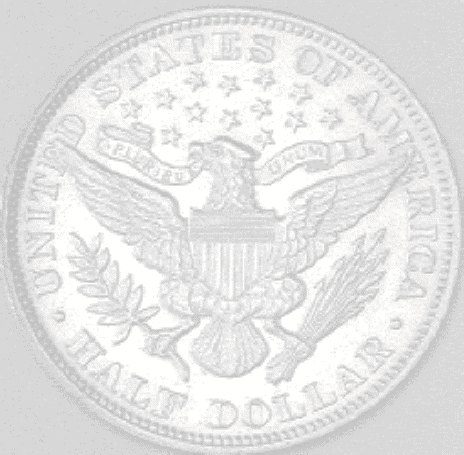
|
|
||
|
|
|
|
|
|
||

-11-
FOR BETTER OR WORSE:
Redemption Suspended
Free men have always been loath
to accept paper as “money". Since its use ultimately requires a legal
tender act to force men to accept it in payment, it is the tender of
tyranny; and since it has no intrinsic value, it is itself inflation and
is therefore the "money" of oppression. From its earliest use on this
continent in 1690, it has been used as the means by which to finance
war.
It is but a gentle step between accepting paper as
"representing" money, and accepting paper as money. For this reason,
Northerners were converting their currency into gold and silver so
rapidly the banks panicked, and on December 30, 1861 they suspended
specie payments. Four days later, on January 3rd, the Treasury followed.
Currency could be no longer presented for redemption in gold and silver.
With paper "money" no longer able to be converted into
metals that are intrinsically valuable, the true nature of currency
began to be felt, and the precious metals once again came to be
appreciated. Gold and silver appeared to rise in value, yet they were
still only as precious as God had created them. What happened was that
confidence had eroded in the ability of Congress to "make good" the
purported value of its paper issuance, and now more paper was demanded
for an exchange.
It was now profitable to melt coins for their bullion
value. Specie payments were not again resumed until 1879 --14 years
after the War ended; and, to use the words of Horace White, "By then
the people had, to a large extent lost sight of the fundamental
principles of money" (White, III).
The Legal Tender Act
The year 1862 was the beginning of a new chapter in this nation's history of banking, for on February 25th, one month after suspending specie payments, Congress passed the Legal Tender Act. In his Essay on Money, Rev. John Witherspoon, the only minister to sign the Declaration of Independence, wrote,
Why will you make a law to oblige men to take money? Are there any who refuse it when it is good? If it is necessary to force them, does not this demonstrate that it is no good? (Lockman, 15)
Ever since the oppressive
Act was passed, the American people have had a constant struggle against
the unmerciful, natural effects wrought by inflation, so that today
Americans have lost all knowledge of what constitutes "money." Having
rejected God's Word on the subject, they have adopted principles spawned
by men. No wonder the public is at the mercy of the bankers.
On March 1, 1781, the Articles of Confederation
conferred upon the government the authority to print paper “money." The
framers of the Constitution, however, prohibited its use by forbidding
states to accept anything but gold and silver as tender. Neither did
they delegate to Congress the authority to print paper "money," but only
to "coin" it.
Only once before the fateful year of 1862 was a legal
tender act even proposed in Congress. During the War of 1812, the
country experienced the darkest days since the winter at Valley Forge.
On November 12, 1814, Bolling Hall of Georgia introduced legislation in
the House that called for the issuing of Treasury notes that would be
legal tender for all debts. By a vote of 42 to 95, the House refused
even to consider the resolution (White, 149).
In his annual report dated
December 1861, Secretary Chase dismissed the idea of passing a legal
tender bill due to the "immeasurable evils of dishonored public faith
and national bankruptcy" (White, 154). Nevertheless, on January 22, he
wrote Elbridge Spalding of Buffalo a half-hearted approval of the bill
he sponsored.
On January 7th, the Ways and Means Committee agreed to
report the proposed legal tender bill. It would be absurd to propose a
law declaring gold and silver "legal tender." Such a law is necessary
only to legitimize fiat “money."
The bill did not win the approval of the Committee, but
suddenly Stratton of New Jersey, one of the dissenting members,
recommended the bill be presented to the House, although he did not
commit himself to support it. The leaders of the banking institutions
were in an uproar. Mr. Gallatin, in behalf of the bankers, proposed an
alternate plan for financing the War, and pleaded in vain against the
use of a legal tender bill.
